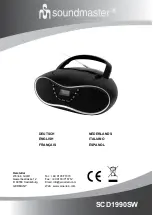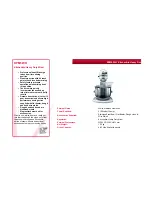
38
MIDI
The Musical Instrument Digital Interface (MIDI) was originally conceived to standardise
the interconnection between keyboards and other instruments. It is now found on all
manner of equipment including sound and lighting consoles, effects devices and
computers. Sophisticated recording and live sound control is now possible by
interfacing sound consoles with other MIDI equipment.
The
GL4000
includes a full opto-isolated Musical Instrument Digital Interface(MIDI)
system. Standard 5-pin
IN
,
OUT
,
THRU
sockets allow connection to external MIDI
equipment including computer show control systems, sequencers, data archiving
systems, musical instruments and so on. The console mute system can control or be
controlled using MIDI. Applications include sophisticated 'hands-off' mute scene
control, effects and instrument patch control, simultaneous control of several consoles
and archiving of the mute settings for later recall.
Pressing console mutes transmits MIDI Note On messages. Recalling patches
transmits MIDI Program Change messages. Similarly receiving the MIDI Note On and
Program change messages overwrites the console mutes and patches. The console
mute memory can be dumped out or in using MIDI System Exclusive messages. The
console can be set to operate on any MIDI channel. If required MIDI can be disabled.
T
HE
MIDI C
ABLES
Use standard 5-pin 180' male-to-male MIDI cables which
are available from you local audio dealer or music shop.
These should not exceed 15 meters (50 feet) in length. To
control external equipment plug MIDI
OUT
to MIDI IN on the
connected equipment. To control the console plug external
MIDI OUT or THRU to console MIDI
IN
. To pass MIDI
through the console to the external equipment plug console
MIDI
THRU
to MIDI IN on connected equipment.
















































